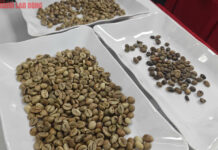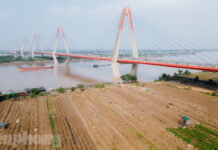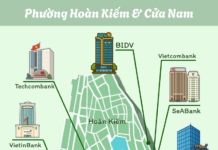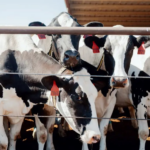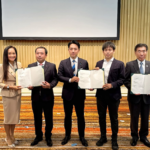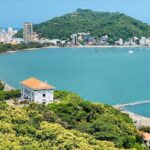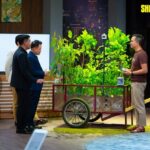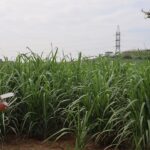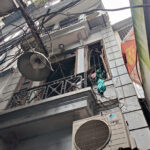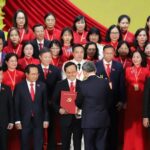To escape poverty in the hilly region of Chiềng Mai (Mai Sơn district, Sơn La), Mr. Hoàng Văn Chất, an ethnic Thai man born in 1960 in Củ 2 village, chose a challenging path: farming with knowledge.
In 1998, despite his family’s financial struggles, he invested 6 million VND—a significant amount at the time—to purchase agricultural technique books on growing citrus fruits like oranges, pomelos, and other fruit trees. By day, he worked in the fields; by night, he studied each page, experimenting on his own land.
After years of persistence and learning, the once-barren hills are now blanketed with over 5 hectares of lush fruit trees, bearing fruit year-round. This steady income transformed Mr. Chất into a model farmer who built wealth through hard work and knowledge.
Sơn La Farmer Turns 5 Hectares of Hilly Land into a Billion-Dong Orange Orchard
Mr. Hoàng Văn Chất stands tall and lean, his sun-weathered face etched with deep wrinkles—a testament to a lifetime of toiling in the mountainous fields. His calloused, slender hands vividly reflect his tireless “muddy hands, dirty feet” labor.
After a few conversations, the sincerity and simplicity of this ethnic Thai man make his love for the land and trees palpable. He passionately speaks of his “bond” with citrus varieties like Vinh oranges, Canh oranges, C36 oranges, and Green-Skin pomelos—the fruits that changed his life.
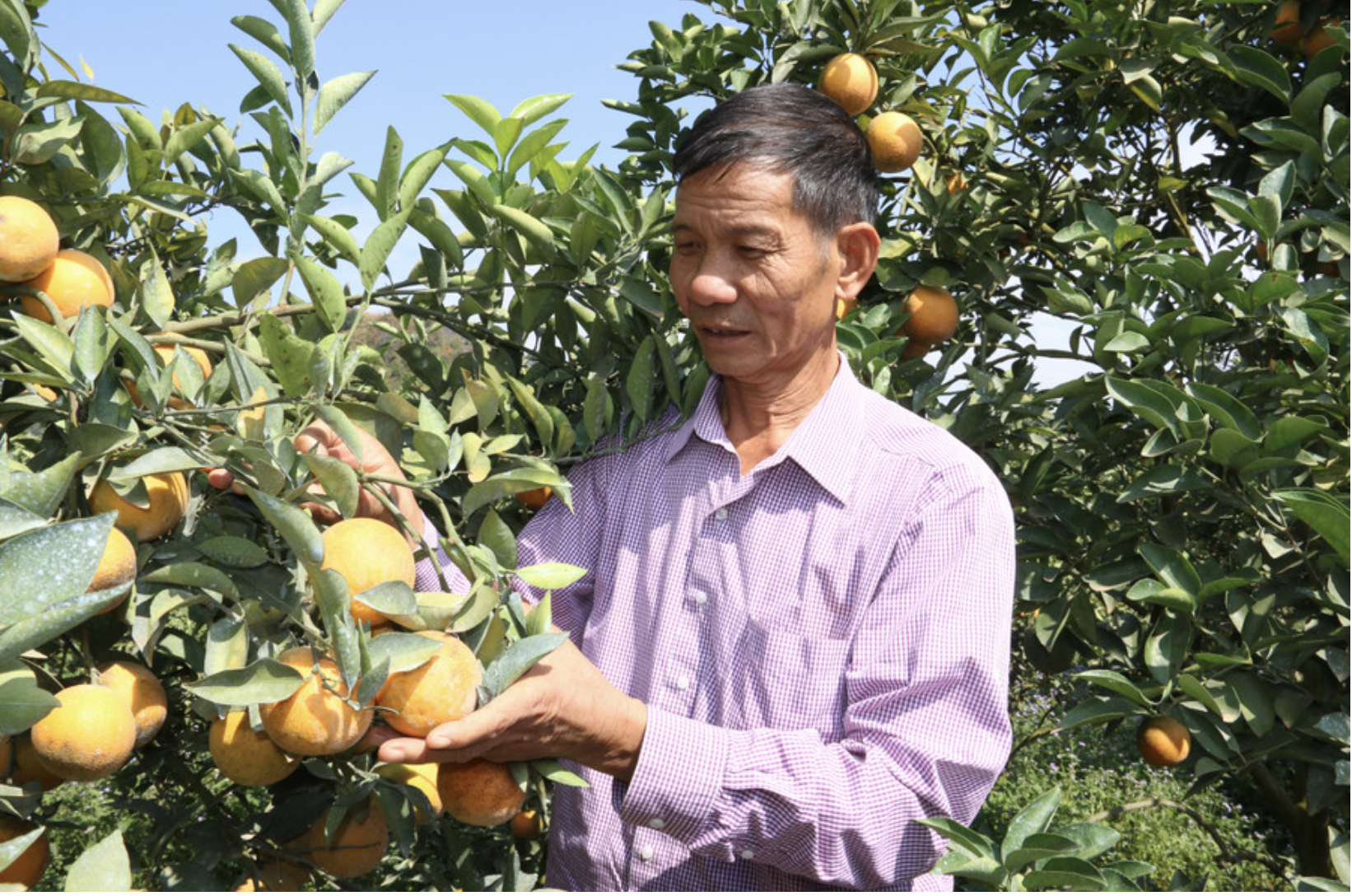
Through relentless learning, Mr. Chất escaped poverty and achieved high income. Image source: Giáo dục & Thời đại
In a recent interview with Giáo dục & Thời đại, Mr. Chất happily shared that his orange orchard is thriving, with harvest just months away. “My fruit garden is quite large, so it requires a lot of care. I’ve hired local seasonal workers to help,” he said.
Amidst the lush greenery of his orchard, Mr. Chất recalls his early struggles, battling barren, rocky land alone. Speaking to Tiền Phong, he added, “I was once a lab technician at Military Hospital 6, but in 1989, I resigned to care for my elderly mother and ill wife. This nearly 5-hectare plot on a remote hill was ideal only for farming.”
Initially, he tried growing rice, plums, apricots, and coffee, but harsh weather and soil conditions led to failure. Undeterred, in 1998, he traveled to Hanoi to buy agricultural books, studying soil and climate to choose suitable crops. After years of experimentation, he found citrus trees like oranges and pomelos best suited his land.
“In 2012, I cleared all coffee, plum, and apricot trees to plant oranges and pomelos. With limited funds, I bought high-quality seedlings from Hanoi nurseries, then propagated them myself. By strictly following VietGAP standards, using organic fertilizers, and minimizing chemicals, my orchard thrives, producing large, juicy, flavorful fruits.
I invested in a drilled well for clean irrigation and use agricultural byproducts like coffee husks and corn cores as compost. Clean farming is harder but ensures high-quality fruit, earning trust from traders and consumers,” he told Tiền Phong.
By applying science and technology, Mr. Hoàng Văn Chất’s orchard in Chiềng Mai, Mai Sơn (Sơn La), flourishes. His plump, fragrant oranges and pomelos attract high-paying traders directly to his farm.
Applying Israeli Technology, Sơn La Farmer Harvests Hundreds of Tons of Oranges Annually
In 2018, Mr. Chất founded Trường Tiến Cooperative, serving as Director and Chairman. The cooperative supplies clean fruit to major Hanoi supermarkets and fruit tree seedlings to northern mountainous provinces, ensuring stable sales and growing brand recognition.
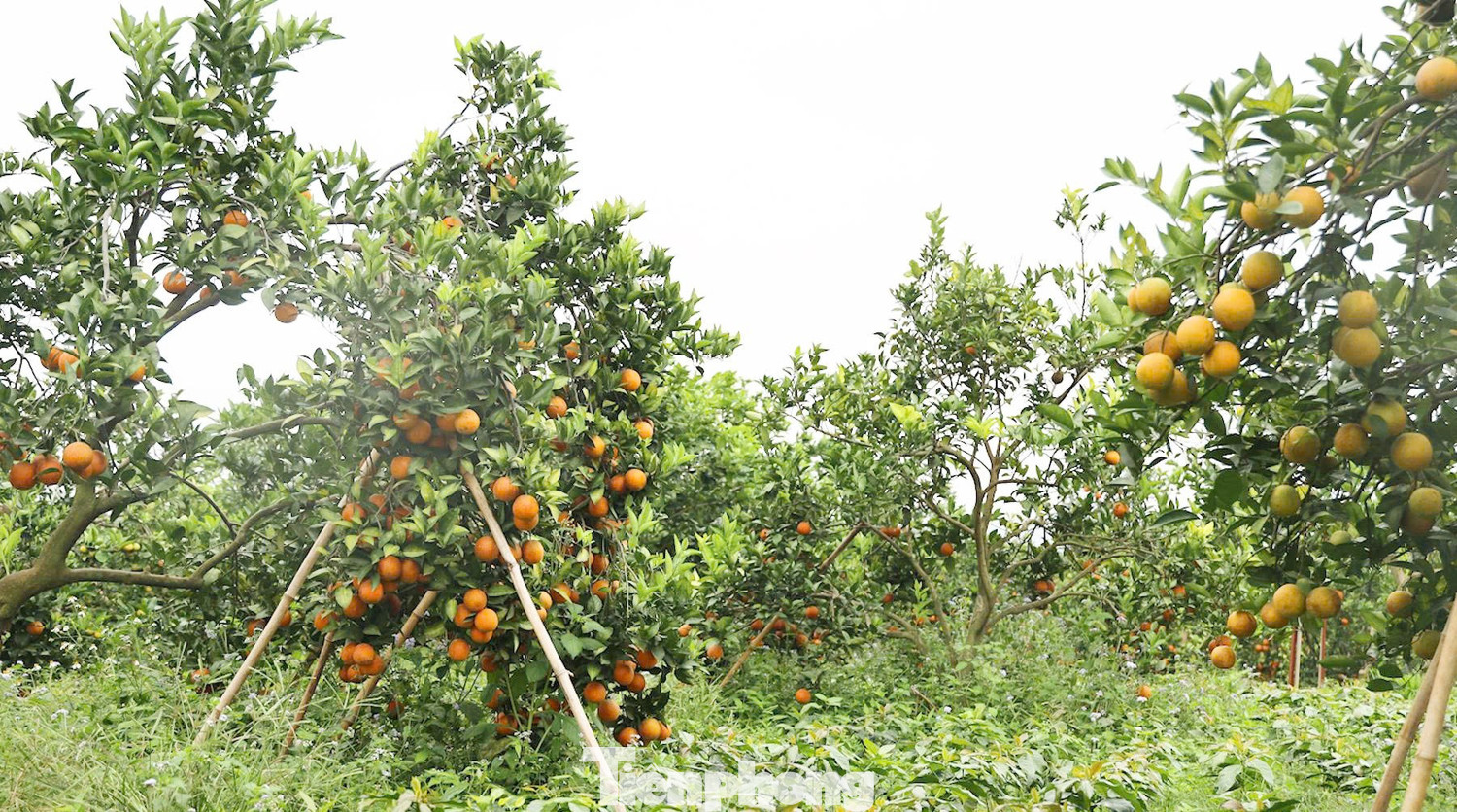
The orange orchard is nearing harvest. Image source: Tiền Phong
Beyond fruit farming, Mr. Chất sells seedlings, boosting family income. “After years of effort, my orchard has nearly 5,000 trees, including 4,000 orange trees and 800 Diễn pomelos and Green-Skin pomelos. Oranges are the bestseller. I prioritize quality and cleanliness, earning customer trust province-wide,” he shared.
Last season, his orchard yielded nearly 200 tons, netting 1.8 billion VND. This year, favorable weather promises 230 tons. “I’m using bamboo to support the heavy branches,” he said, pride evident in his smile.
Trường Tiến Cooperative now has 22 members managing 32 hectares of VietGAP-certified oranges and pomelos (Vinh, V2, C36, American, Canh, Green-Skin, and Diễn varieties). Eighteen hectares are in stable production.
To boost efficiency, Mr. Chất adopted Israeli drip irrigation, precisely watering each tree, saving labor, and ensuring sustainability.
Mr. Nguyễn Hải Sơn, Chairman of Chiềng Mai Commune, said, “Mr. Hoàng Văn Chất pioneered crop restructuring and digital farming. Beyond his success, he supports poor households, contributing to poverty reduction.”
“PAN Group Joins Forces with Two Japanese Giants to Trial ‘Immunity-Boosting’ Products for Crops in Vietnam”
The PAN Group and AGRI SMILE, in collaboration with the Mitsubishi Research Institute, are set to embark on an exciting journey as they pilot a joint project utilizing a biostimulant produced by AGRI SMILE. This innovative initiative will be implemented in the PAN Group’s raw material area, with a specific focus on assessing the nutrient absorption and heat tolerance of crops, particularly rice plants.
Unleashing Economic Growth: Baria-Vung Tau’s Stellar Performance in H1 2024
In the first half of 2024, Ba Ria – Vung Tau’s key economic sectors, including tourism, industry, and agriculture, witnessed positive transformations, yielding impressive results.
“The Tech-Savvy Agri-Startup: How One Company Revolutionized Durian Farming with Cutting-Edge Technology”
With a self-valuation of $4.3 million, agritech startup Enfarm confidently rejected two potential investors on the spot. Their proprietary technology for measuring soil nutrition boasts lab-grade accuracy, and the company is clearly confident in its unique selling point. Despite Shark Hưng’s assertion that he made an attractive ‘angel’ investment offer, Enfarm’s founders remained unmoved and chose to walk away from negotiations.
“Australia Backs AI-Assisted Agriculture in Vietnam”
Australia has just announced a significant funding package of AUD 1.45 million to support three innovative projects in Vietnam. These projects aim to revolutionize agricultural practices by harnessing cutting-edge technologies that boost productivity and promote sustainable farming. This substantial investment underscores Australia’s commitment to fostering collaborative initiatives that drive progress and sustainability in Vietnam’s agricultural sector.


